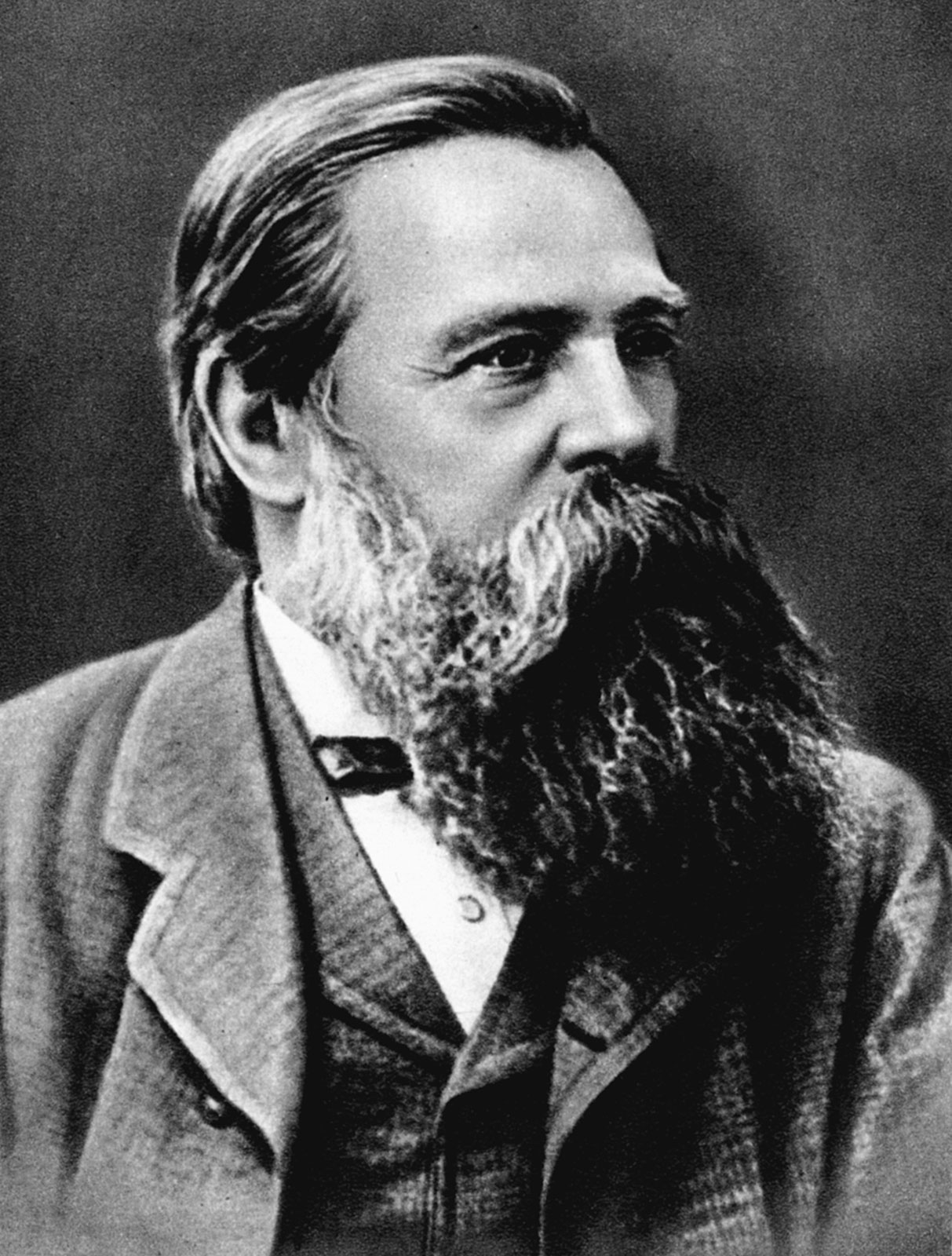More languages
More actions
Friedrich Engels | |
|---|---|
 Comrade Engels 1879 | |
| Born | 28 November 1820 Barmen, Kingdom of Prussia, German Confederation |
| Died | 5 August 1895 (aged 74) London, England, Great Britain and Ireland |
| Nationality | German |
Friedrich Engels (28 November 1820 – 5 August 1895), sometimes anglicized as Frederick Engels, was a German philosopher, historian, political scientist and revolutionary socialist. Together with his friend and long time collaborator Karl Marx, he developed the materialist scientific explanation of history and economics, which later became known as Marxism.
Engels was Marx’s dearest friend and inseparable comrade in arms, co-developer of dialectical materialism and scientific socialism and co-author with Marx of the Communist Manifesto; one of the founders of the Communist League and the International Association of Workingmen or First International.
Early Life
On 28 November 1820 Engels was born in the city of Barmen in the Kingdom of Prussia, a town of less than 40,000 located in the Rhineland. Of nine children (four brothers, four sisters) he was the eldest son of Elise von Haar and capitalist, Friedrich Engels Sr who owned a string of cotton mills. His childhood was privileged and his parents raised him in a supportive, loving but also conservative and devoutly Pietist Protestant environment. The only element of his parents personality Engels inherited was that of philanthropy, he was the only one of his brothers to not join the family business and adopt their narrow conservative viewpoint.[1]
At the age of 20, Engels had many talents and developed many abilities. He practiced sports and studied music and foreign languages, including English, Italian, Russian, Spanish and Portuguese.
Engels moved to Manchester, England in 1842 and observed the conditions of the proletariat, leading him to write The Conditions of the Working Class in England. In 1844, on the way back to Germany, he wrote The Holy Family with Marx, which criticized Bauer and his rejection of political activity. Engels lived in Brussels and Paris between 1845 and 1847.
Later Life
Marx and Engels returned to Germany to fight in the revolutions of 1848. He fled to London through Switzerland after the revolution was defeated. He moved to Manchester, where he lived until 1870. After Marx's death in 1883, he prepared and published the second and third volumes of Capital. He planned to release a fourth volume but died in 1895 before it was finished.[2]
Library works
- (1844) The holy family
- (1845) The conditions of the working class in England
- (1846) The German ideology
- (1847) The principles of communism
- (1848) Manifesto of the Communist Party
- (1850) The peasant war in Germany
- (1861) The civil war in the United States
- (1872) On authority
- (1876) The part played by labour in the transition from ape to man
- (1878) Anti-Dühring
- (1880) Socialism: utopian and scientific
- (1884) The origin of the family, private property and the state
- (1886) Ludwig Feuerbach and the end of classical German philosophy
- (1892) The Mark
- (1894) A contribution to the history of primitive Christianity
- (1896) Revolution and counter-revolution in Germany (Posthumous)
References
- ↑ John Green (2008). Engels: A Revolutionary Life: A Biography of Friedrich Engels: 'A wild seed' (pp. 14-18). Artery Publications. ISBN 978-0-9558228-0-3 [LG]
- ↑ Vladimir Lenin (1895). Frederick Engels. [MIA]
